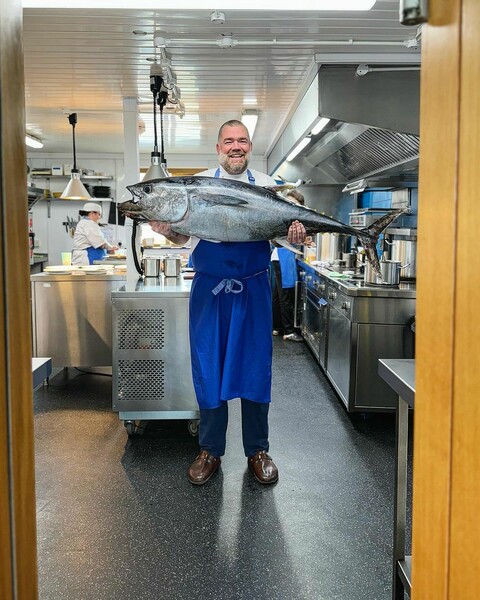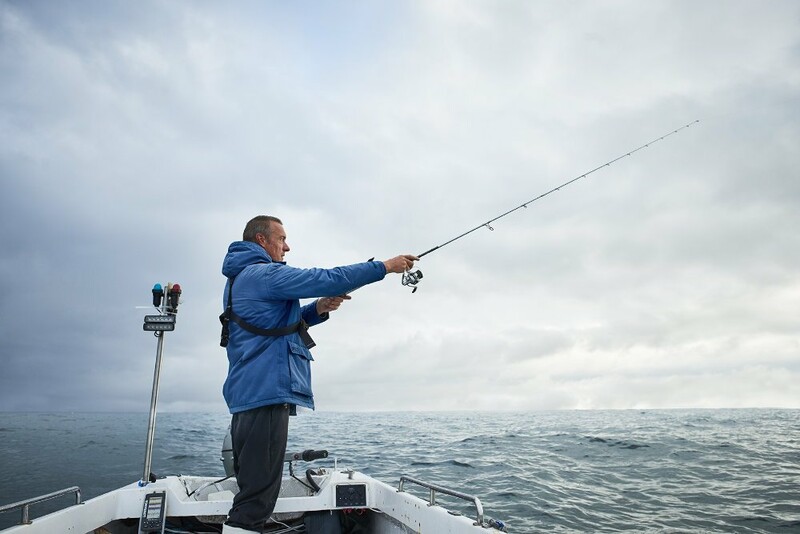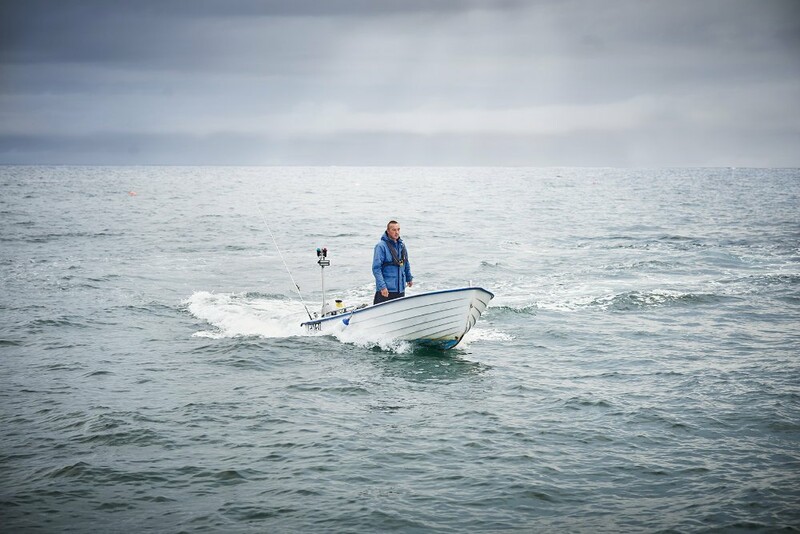For a start, I cannot begin to tell you how excited I am over bluefin tuna now being landed locally. I just never thought it. Purely from a cooking point of view, this is probably the most exciting development since I’ve been cooking, fish-wise, in 30 years. Quite simply, the bluefin is incredible - so much potential and when creating new dishes, gives you so many different options.

Bluefin tuna have always been around in UK waters, but it wasn’t until about five years ago that there was clear evidence of growing numbers. Many fishermen told me of the frenzy of big shoals of oily fish being gathered and devoured in alarmingly quick time by the bluefin tuna, a serious predator.
At the time of writing, the MMO (Marine Management Organisation) has granted 13 licenses to UK fishermen to catch the fish. They can only be caught by rod and line with lures, and a closely monitored system ensures that the fisherman report what they’ve caught, when they’ve caught it and where, recording as much information as possible. The only other way bluefin tuna can be landed is by ring-netters catching oily fish like herring and sardines. They are allowed one fish per day, per trip.

I tend to buy fish that weighs between 50kg-70kg. Fish that size are incredibly big, but I have had a 160kg fish that was 7 feet 5 inches long. A lot of fish! The incredible thing is they can be bigger too. Bonkers! I wouldn’t have a chopping board or knife big enough for a fish like that and usually these bigger fish, purely down to their size, can get damaged.
Taking a moment away from the filleting block (at the time of writing, up to 270kg of bluefin tuna in two weeks), I am struck by how far Cornwall has come over the past 20 years within the culinary scene. The county has now amassed an outstanding collection of restaurants, pubs, cafes, bakeries, beach shacks and pop-ups; with such a great variety in cuisine and offering. But what really stands out for me is the produce. While Cornwall is a seasonal destination, the produce throughout the year is varied and remains exceptional, gifting us chefs a bounty of seafood, meat and vegetables all-year round. It is no wonder that so many chefs have embarked on Cornwall or, if sticking to their city dwellings, highlight Cornish ingredients on their menus. Cornish mackerel? We just call it mackerel down here.

It is no different in the cooler months. At my restaurants, Outlaw's Fish Kitchen and Outlaw's New Road, one of the very reasons we started our Outlaw’s Winter Foodie Getaway (now in its tenth year) was to allow us to stay open in the winter, when perhaps Cornwall’s ‘sunny’ beaches are less inviting. However, we still have the most amazing seafood available, and the idea of displaying this across both restaurants in Port Isaac, over two nights, in two completely different settings with varied dishes, gives me and the team an exciting new challenge and a chance to keep the creative juices flowing.

So, to this winter. We expect to see the last of the lobster season in November and December, and the exciting new arrival of bluefin tuna drawing to a close at the end of the year. Hen crabs are quite possibly at their best in the winter, when the fattier mackerel and meatier monkfish start to land. We will be exploring different techniques and flavours to enhance the seafood, or simply show them off in their purest form. No promises of what exactly will be on the menus, but I can promise you it will be the best and freshest from our waters.
Nathan Outlaw is chef-proprietor of Outlaw's New Road, Outlaw's Fish Kitchen and Outlaw's Guest House in Port Isaac. Find out more about his Winter Foodie Getaway here.








